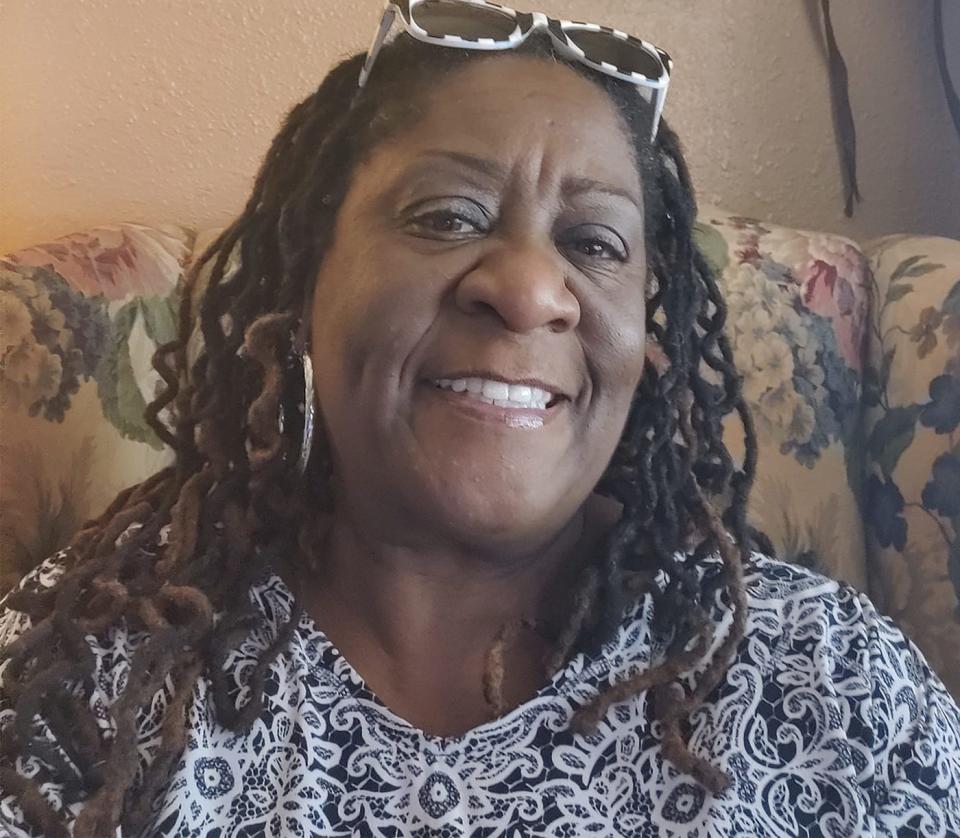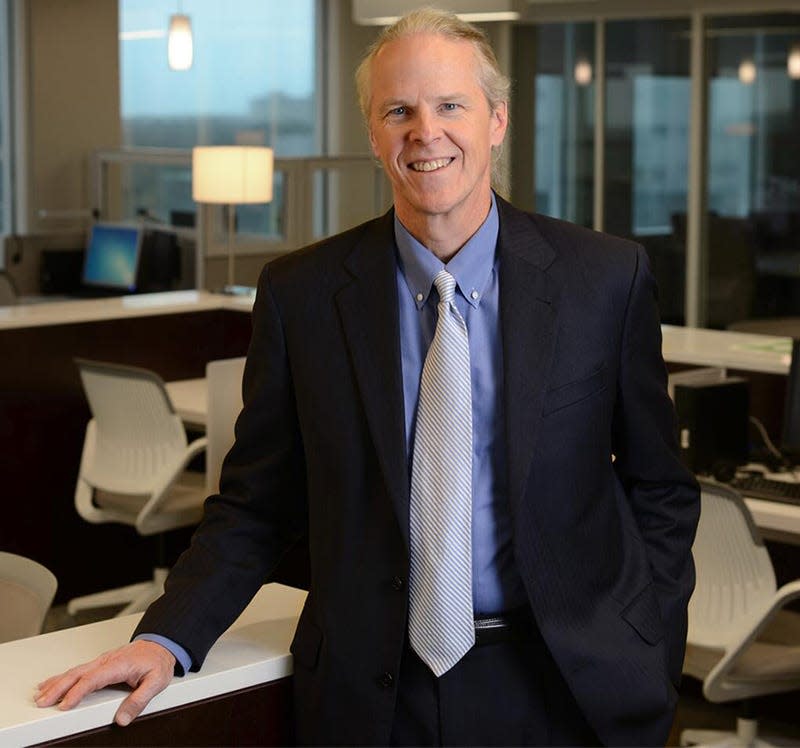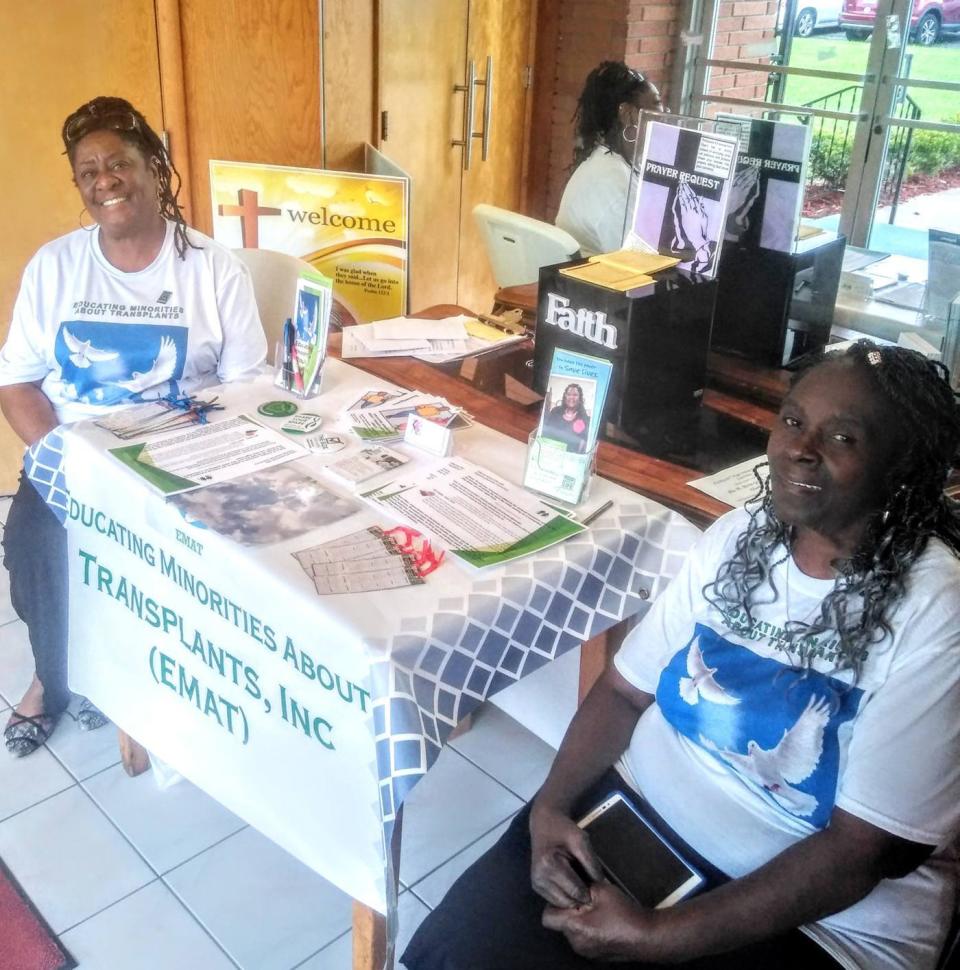'Second chance at life': Jacksonville nonprofit educates minorities about organ donation, transplants
Shirley Scott Brill was 49, teaching at an elementary school on Jacksonville's Eastside, when she began to experience shortness of breath.
In denial of the frightening possibilities, she told herself it meant nothing.
That was 2005. Brill's eventual trip to the emergency room led in January 2008 to a diagnosis of end-stage lung disease. She was told she needed a lung transplant.
"I’d heard of transplants before, even signed up to be an organ donor, but never imagined this would be my road to travel," Brill said.
New life: Orange Park cancer, heart transplant survivor finds ‘zen’ in cookie business
Donna Marathon: Mayo doctor to run race 1 year and 1 day after receiving a heart transplant
Now 66, she said her May 2008 double lung transplant was a "lifesaving gift of a second chance." And she has been using it in part to inform her fellow African Americans and other minorities about organ donation and transplants.
The nonprofit she founded and leads, Educating Minorities About Transplants, hosts events to spread the word and raise funds. Donations help transplant patients with living and travel expenses, medications and other needs.
The next events are Aug. 5-6 in Jacksonville during National Minority Donor Awareness Month. Admission is free.

The seed for her nonprofit was planted in 2015 when she heard the disconcerting statistics of organ donation among African Americans. She found the information "unbelievably shocking."
More Black people need organ donation than whites; fewer of them are donors
Nationwide, African Americans make up the largest group of minorities in need of an organ transplant: 28.5% of the total candidates currently waiting for transplants are blacks, but only 12.9% of organ donors in 2020 were Black, according to the U.S. Department of Health and Human Services Office of Minority Health.
"There is a lack of donor awareness among minorities because we don’t have the conversation with our loved ones, we pass the myths and misconceptions to the next generation," Brill said. "We are not exposed to people who will share truths about organ donation and the difference it has made in our lives — we don’t educate."
The most prominent myth, she said, is that no attempt will be made to save people in medical crisis who have signed organ donation cards. That is false. Another reason people give for not donating organs is that they "were born with them and want to take them to heaven," she said.
Latest organ transplant milestone: Pig hearts to brain-dead patients
Historic operaton: First person to receive gene-edited pig heart dies 2 months later
When Brill hears people use that reasoning, she wants to tell them that those organs actually decompose in the ground after death. Instead, she asks them if they have a few minutes to hear the facts about organ donation and transplants.
By telling their stories, Brill, other transplant survivors and organ donors are saving lives, according to Dr. Martin Mai, a transplant nephrologist and medical director of Kidney Transplant at Mayo Clinic in Jacksonville.

Lack of accurate information, he said, "may discourage minorities from seeking the optimal care" and from considering donating organs.
"Education dispels the myths so patients make best decisions based on accurate information … [and] also builds trust in the medical community, which is needed to provide the best care possible," Mai said.
Community-based groups like the one founded by Brill "provide a valuable service," he said.
Harsh reality: Community health assessment reveals nagging issues, inequities, opportunities for action in Jacksonville area
Opinion: Black people can become organ donors, even if they don't trust the medical system
"Providing opportunities for patients to hear about experiences from folks from the same community may be the best way to build trust and provide needed information to make decisions," Mai said. "Myths … are present in all communities. I can provide the facts, dispelling these myths. But the message delivered from someone in the patient's community that they can trust will be better taken to heart."
'Simple things ... became more difficult'
Brill easily shares the truth about her illness and transplant.
After the end-stage lung disease diagnosis, she sought a second opinion, which confirmed the first. By that time the disease was so aggressive her health had drastically declined. She needed an oxygen concentrator, a medical device that provides extra oxygen, in her home and classroom.
"The simple things in life became more difficult," she said. "There were times when I would silently sob and say goodbye to people who loved and supported me throughout my life."
'Medical hotspot': Jacksonville physicians tout innovative techniques in health care
'Concerted effort needed to fix it': Jacksonville's deep-rooted health disparities can impact lifetimes.
She had the support of her two daughters, son, friends, school principal, pastor and church — St. Stephen AMEC, where she was minister of music. She continued teaching long enough to get her students through state assessment testing in early 2008, then took a leave of absence.
"I never gave up hope," she said.
In May her doctor called to say a lung was available. She ended up getting two new lungs. She does not know the identity of the donor.
"I credit God with my blessings and then the donor and donor family that said 'yes,'" she said.

Brill returned to teaching for six more years and retired. Now she spends most of her time on her nonprofit's mission.
"Having a second chance at life means I’ve been given the opportunity to share with others the importance of believing that miracles still exist in everyday life to everyday people," she said.
bcravey@jacksonville.com, (904) 359-4109
Nonprofit celebrates National Minority Donor Awareness Month
Educating Minorities About Transplants will have two events Aug. 5 and a third on Aug. 6. Among the guests at each session will be Robert Chelsea of Los Angeles, who in 2019 was the first Black patient, and the oldest, in the world to receive a full face transplant; and George Franklin, the oldest and longest living Black kidney transplant survivor in the U.S. who received the organ in 1975. Admission is free. To reserve a seat at any or all of the events, call or text (904) 537-8623 or email emat.inc185@gmail.com.
Aug. 5
• Noon to 1:30 p.m.: "Chattin' 4 Change" panel discussion, Florida State College at Jacksonville North Campus, 4501 Capper Road.
• 4:30 to 6 p.m.: Kidney Health Matters, Walker Auditorium/Davis Building at Mayo Clinic, 4500 San Pablo Road, Jacksonville. Masks required.
Aug. 6
4 to 7 p.m.: "ONE✔YES" Makes a Difference Banquet, HC Multicultural Center At Saint Thomas, 6651 Crestline Drive, Jacksonville.
To donate, volunteer or get more information, go to emat-inc.org/ or facebook.com/Educating-Minorities-About-Transplants-Inc-426832114781177.
This article originally appeared on Florida Times-Union: All-volunteer Jacksonville nonprofit builds minority organ donor pool

